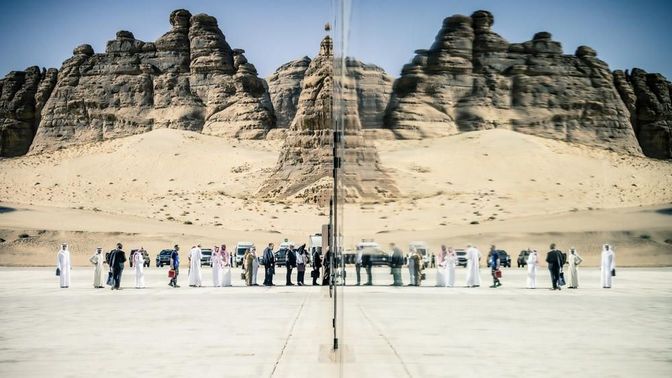

MSC and CNAS Host Discussion on Afghanistan at Doha Forum 2022
The Munich Security Conference and the Center for a New American Security (CNAS) hosted a panel discussion with senior decision-makers from Afghanistan, Germany, and the United States on how the West should engage with Afghanistan after the return of Taliban rule.
On March 19, 2022, the Munich Security Conference (MSC) and CNAS brought together a group of experts and senior decision-makers, including a former Afghan minister, at this year’s Doha Forum for a discussion titled "Between Full Retreat and Reengagement: Afghanistan & the Role of the West." The panel discussion addressed questions on key lessons from 20 years of Western engagement in Afghanistan, on the future role and responsibilities of the West in the country, and on the way the international community should deal with the new regime in Kabul.
A policy of total and complete isolation [of Afghanistan] would be an abandonment of 40 million people.Thomas West•Special Envoy to Afghanistan, US Department of State
Moderated by Steven Clemons (Editor at Large, The Hill), the panel featured Hosna Jalil (Former Deputy Minister, Policy and Strategy, Ministry of the Interior, Islamic Republic of Afghanistan), Niels Annen (Parliamentary State Secretary to the Federal Minister of Economic Cooperation and Development, Germany), and Thomas West (Special Envoy to Afghanistan, US Department of State). The discussion was opened by Ambassador Wolfgang Ischinger, who reminded the international community not to lose sight of crises like in Afghanistan while the war in Ukraine is raging on. After Ambassador Ischinger’s opening remarks, an open and substantive discussion took place between the senior decision-makers. All panellists emphasized the need to support the Afghan population in light of the dire humanitarian crisis. At the same time, they drew attention to the profound political obstacles to cooperation with the new regime in Kabul, especially given the recent deterioration of the situation for women and girls in Afghanistan.
We can and we should not forget that it is about the fate of the [Afghan] people […]. Apart from the humanitarian aspects, this is a vital region for global stability. We need to find pragmatic ways to make an investment that will guarantee the economic survival of the country.Niels Annen•Parliamentary State Secretary to the Federal Minister of Economic Cooperation and Development, Germany
The discussion highlighted the critical role of regional actors like Qatar or Pakistan in coping with the challenges Afghanistan is facing and possible transnational security risks emanating from the country. Despite many shortcomings in the Western engagement in Afghanistan, the panelists acknowledged the Western contribution to facilitating the development of Afghan civil society. The panel discussion was concluded by Lisa Curtis (Senior Fellow and Director, Indo-Pacific Security Program, CNAS), who underscored the importance of cooperation between the transatlantic partners and like-minded states in responding to the situation in Afghanistan.
The last 20 years of presence of the international community and forces was not a waste. Yes, we have lost a lot and we have grieved for it, but it’s not a waste. The reason is because we have facilitated the growth a generation, which makes two thirds of the population of Afghanistan today, who know how a better life looks like. […] That’s the reason they won’t give up hope to rebuild Afghanistan […].Hosna Jalil•Former Deputy Minister, Policy and Strategy, Ministry of the Interior, Islamic Republic of Afghanistan
Watch the recording of the whole event:
MSC Chairs Panel on Strategic Alliances at Doha Forum
In addition to its panel discussion on Afghanistan, the President of the Foundation Council of the Munich Security Conference, Ambassador Wolfgang Ischinger, chaired a panel discussion on the role of strategic alliances in maintaining peace and security.
Titled “The Evolving Landscape of Strategic Alliances,” the panel featured Khalid Bin Mohamed Al Attiyah (Deputy Prime Minister and Minister of State for Defense Affairs, Qatar), Hulusi Akar (Minister of Defense, Turkey), and Patrick Turner (Assistant Secretary General for Defense Policy and Planning, NATO).



